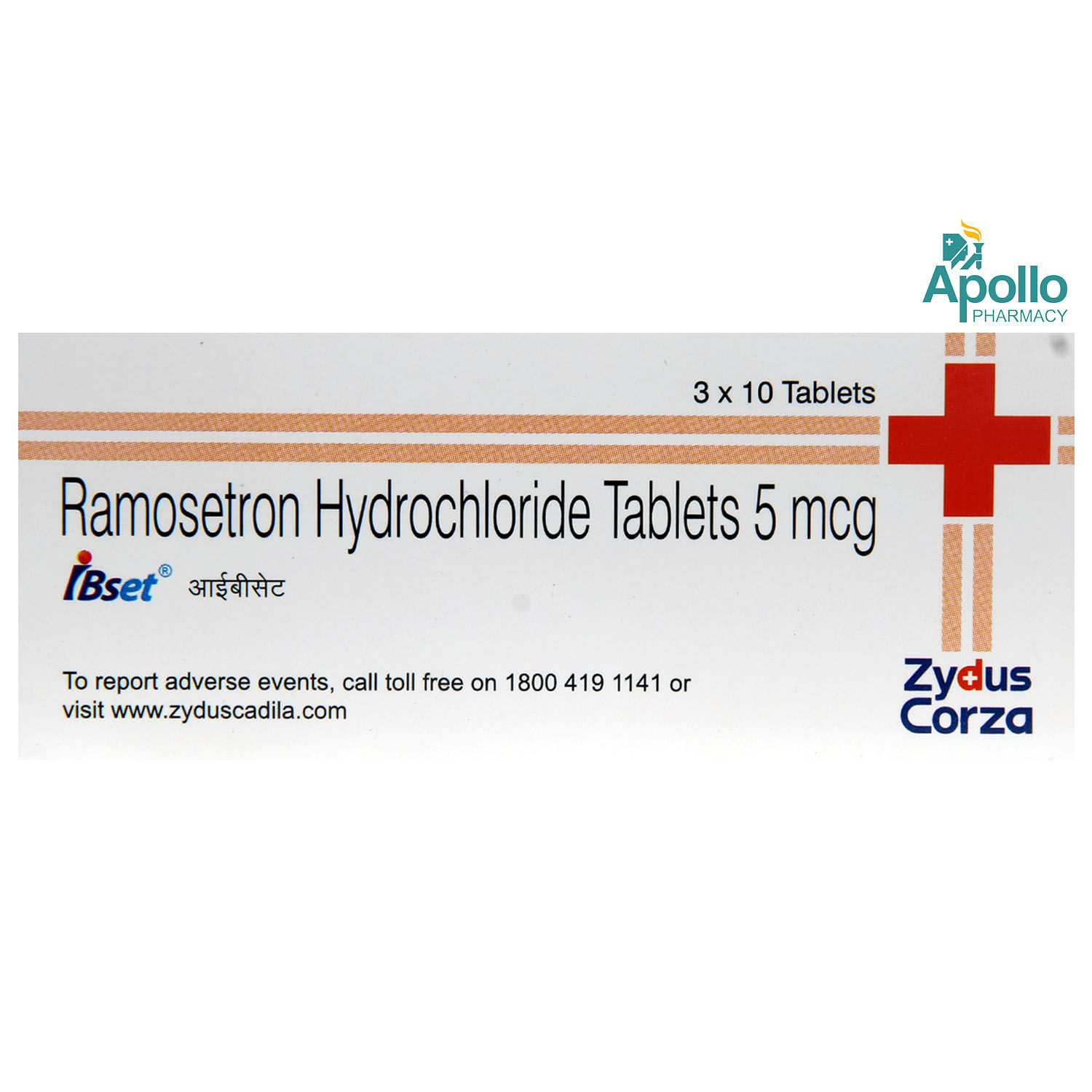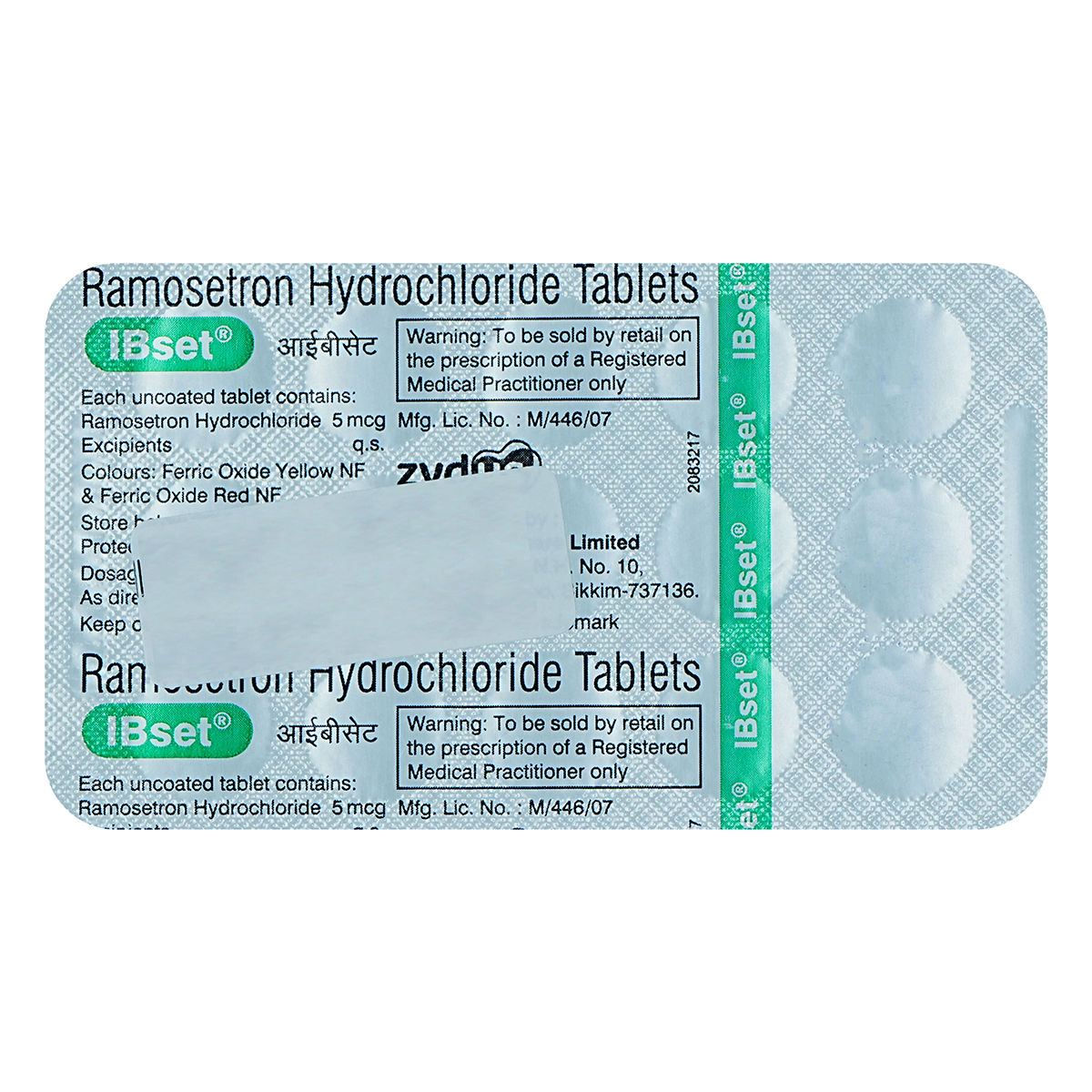Ramosetron
About Ramosetron
Ramosetron is used to prevent chemotherapeutic-induced or postoperative nausea and vomiting. Additionally, Ramosetron is also used to treat irritable bowel syndrome in men. Nausea is an uneasy feeling in which the person feels an urge to vomit, whereas vomiting is an uncontrollable reflex that expels the contents of the stomach through the mouth.
Ramosetron contains ‘Ramosetron’ that works by blocking the action of a chemical messenger in the brain called serotonin to 5-HT3 receptors present in the afferent vagal nerve endings in the gastrointestinal mucosa. Thereby, Ramosetron helps in preventing nausea and vomiting after chemotherapy or operation.
You are advised to take Ramosetron as long as your doctor has prescribed it for you, depending on your medical condition. In some cases, you may experience common side effects such as diarrhoea, headache, bloating, abdominal pain, and constipation. Most of these side effects do not require medical attention and will resolve gradually over time. However, you are advised to talk to your doctor if the side effects persist or worsen.
Consult your doctor if you are pregnant or planning for pregnancy. Do not take Ramosetron if you are breastfeeding. Be cautious while driving as it is unknown whether Ramosetron affects your ability to drive. Ramosetron is not recommended for children as safety and effectiveness have not been established. Keep your doctor informed about your health condition and medicines to rule out any side effects/interactions.
Uses of Ramosetron
Medicinal Benefits
Ramosetron belongs to a group of anti-emetic medicines called 5-HT3 receptor antagonists. Ramosetron is used to prevent chemotherapeutic-induced or post-operative nausea and vomiting. Additionally, Ramosetron is also used to treat irritable bowel syndrome in men. Ramosetron works by blocking the action of a chemical messenger in the brain called serotonin to 5-HT3 receptors present in the afferent vagal nerve-endings in the gastrointestinal mucosa. Thereby, Ramosetron helps in preventing nausea and vomiting after chemotherapy or operation.
Directions for Use
Storage
Side Effects of Ramosetron
- Diarrhoea
- Headache
- Constipation
- Bloating
- Abdominal pain
Drug Warnings
Do not take Ramosetron if you are allergic to any of its contents. Talk to your doctor if you have infectious enteritis, colitis, colon cancer, gastrointestinal problems, heart, liver or kidney problems. Consult your doctor if you are pregnant or planning for pregnancy. Do not take Ramosetron if you are breastfeeding. Be cautious while driving as it is unknown whether Ramosetron affects your ability to drive. Ramosetron is not recommended for children as safety and effectiveness have not been established.
Drug Interactions
Drug-Drug Interactions: Ramosetron may interact with anti-depressants (fluvoxamine), diuretics (bumetanide), anti-psychotics, tricyclic anti-depressants, anti-cholinergic, opioid narcotics, and phenothiazine drugs.
Drug-Food Interactions: No interactions found/established.
Drug-Disease Interactions: Inform your doctor if you have infectious enteritis, colitis, colon cancer, or gastrointestinal problems.
Drug-Drug Interactions Checker List:
Safety Advice

Alcohol
cautionIt is unknown whether alcohol interacts with Ramosetron. Please consult your doctor before consuming alcohol along with Ramosetron.

Pregnancy
cautionRamosetron belongs to pregnancy category C. Consult your doctor if you are pregnant; your doctor will prescribe only if the benefits outweigh the risks.

Breast Feeding
unsafeIt is not recommended to take Ramosetron if you are breastfeeding as it might pass into breastmilk and cause harm to the baby.

Driving
cautionIt is unknown whether Ramosetron impairs your ability to drive. Do not drive or operate machinery unless you are alert.

Liver
cautionLimited information is available regarding the usage of Ramosetron in patients with liver disease. Consult your doctor if you have a liver impairment or any concerns regarding this.

Kidney
cautionLimited information is available regarding the usage of Ramosetron in patients with kidney disease. Consult your doctor if you have kidney impairment or any concerns regarding this.

Children
unsafeRamosetron is not recommended for children as the safety and effectiveness were not established.
Habit Forming
Diet & Lifestyle Advise
- Eat smaller meals more often.
- Drink fluids to stay hydrated. Use oral rehydration solutions (ORS) to replace lost electrolytes.
- Avoid solid foods until vomiting stops.
- Avoid foods that might cause stomach upset.
- Take ample rest. Avoid any activity immediately after eating.
- Consume plain, light foods such as bread and biscuits.
- Avoid food with strong flavours and fried food.
- Ginger tea might help in proper digestion.
Patients Concern
Disease/Condition Glossary
Nausea & Vomiting: Nausea is an uneasy feeling in which the person feels an urge to vomit, whereas vomiting is an uncontrollable reflex that expels the contents of the stomach through the mouth. Nausea and vomiting may occur separately or together. The common causes include motion sickness, emotional stress, indigestion, food poisoning, high fever or overeating. Nausea/vomiting might occur as an unpleasant effect of therapy, such as chemotherapy and radiation therapy.
Irritable bowel syndrome (IBS): IBS is also known as irritable colon, spastic colon, spastic colitis, and mucous colitis. An irritable bowel syndrome is a group of intestinal symptoms that occur together. The exact cause is unknown, but common causes of IBS are acidity, stress, carbonated foods and beverages, irregular hormone levels, and certain food and medications. Symptoms include abdominal pain, cramps, bloating, gas, constipation, and/or diarrhoea.
FAQs
Ramosetron is used to prevent chemotherapeutic-induced or post-operative nausea and vomiting. Additionally, it is also used to treat irritable bowel syndrome.
Ramosetron works by blocking the action of serotonin, a chemical messenger in the brain that might cause nausea and vomiting. Thereby, Ramosetron helps in preventing nausea and vomiting after chemotherapy or operation.
Ramosetron is used to treat diarrhoea-predominant irritable bowel syndrome, which is an intestinal disorder that causes stomach pain, flatulence, diarrhoea or constipation.
Diarrhoea might be a side-effect of Ramosetron. Drink enough fluids to prevent dehydration if you experience diarrhoea. Consult your doctor if you experience severe diarrhoea or if you find blood in stools.
When taken along with anti-depressants such as fluvoxamine, the plasma concentrations of Ramosetron might increase. So, consult your doctor before taking Ramosetron with anti-depressant medicines.
Constipation might be a side-effect of Ramosetron. Drink enough fluids and eat fibre-rich food if you experience constipation. Consult your doctor if you experience severe constipation.
Inform the doctor about your detailed medical and surgical history, if you have liver diseases, stomach problems, brain disorders, or fits and if you are pregnant, breastfeeding or planning pregnancy. Inform your doctor if you are taking any other medicines including supplements or herbal products as Ramosetron may interact with other medicines.
No, Ramosetron is not recommended for nursing mothers as it passes into the breastmilk and can cause adverse effects to the baby. Therefore, if you a nursing mother, inform your doctor before starting Ramosetron.
Ramosetron may cause side effects such as diarrhoea, constipation, headache, bloating and stomach pain. If these side effects persist or worsen, please consult your doctor.
Take Ramosetron with or without food or as advised by your doctor. Swallow it as a whole with a glass of water. Do not break, chew or crush it. Do not take more than the recommended dose.
Yes, Ramosetron can be used to treat diarrhoea associated with irritable bowel syndrome (IBS) in men. However, take Ramosetron only if it is advised by your doctor. Do not self-medicate.
Ramosetron starts working within 30 minutes to 2 hours. It quickly dissolves into the bloodstream and starts showing its effect.
Ramosetron can be taken with or without food as advised by your doctor. Generally, the initial dose is taken before the start of your chemotherapy, surgery, or radiation treatment. Follow your doctor's instructions carefully.
No, Ramosetron is not a steroid. It is an antiemetic and belongs to the class of selective 5-HT3 receptor antagonists.
No, Ramosetron does not work for seasickness due to the negligible effect Ramosetron has on the motion sickness related nausea.
If you miss a dose of Ramosetron, do not worry. Take it as soon as you remember. But, if it is time for your next dose, skip the missed dose and take your regular dose. Do not take a double dose to make up for the missed dose.
Yes, other medicines such as antidepressants, diuretics, anti-psychotics, tricyclic anti-depressants, anti-cholinergics, opioid narcotics, and phenothiazine drugs can interact with Ramosetron. Therefore, contact your doctor before taking other medicines with Ramosetron.






